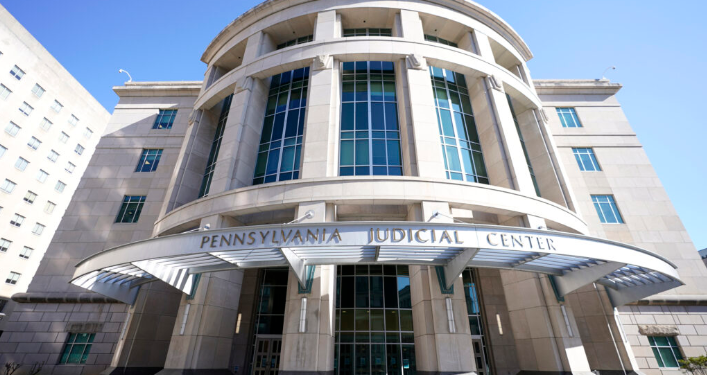Aug 30, 2024 Story by: Editor
In a 4-1 decision, the Pennsylvania Commonwealth Court has blocked the enforcement of a law that required election officials to reject otherwise valid mail-in ballots due to missing or incorrect handwritten dates on their return envelopes.
The disputed handwritten date requirement in the battleground state led to the disqualification of more than 10,000 mail-in ballots in the 2022 midterm elections and several thousand more in the 2024 presidential primary. With this ruling, thousands of mail-in ballots are expected to be preserved in the upcoming presidential election.
The four-judge majority, in a 94-page opinion issued today, found that Pennsylvania’s strict enforcement of the handwritten date rule for mail-in ballots violates the fundamental right to vote under the state constitution’s Free and Equal Elections Clause.
“The refusal to count undated or incorrectly dated but timely mail ballots submitted by otherwise eligible voters because of meaningless and inconsequential paperwork errors violates the fundamental right to vote recognized in the free and equal elections clause,” the opinion stated.
The ruling arises from a lawsuit filed in May by the Black Political Empowerment Project and other nonprofits seeking to prevent Pennsylvania’s 67 counties from enforcing the handwritten date rule. This is the first legal challenge to the rule on the grounds of violating the right to vote under the Pennsylvania Constitution.
Some of the plaintiff organizations are also involved in a related federal lawsuit, arguing that rejecting mail-in ballots over date issues violates the U.S. Constitution. Although a federal judge initially ruled in favor of the plaintiffs, determining that the practice violated the Civil Rights Act, the 3rd U.S. Circuit Court of Appeals later overturned that decision.
In this state-level case, both the Republican and Democratic National Committees (RNC and DNC) intervened, with the RNC supporting the disqualification of undated or wrongly dated mail-in ballots, and the DNC opposing it. The DNC noted in court filings that counties do not rely on handwritten dates to determine the timeliness of a mail-in ballot; instead, they use the time at which ballots are received and scanned into Pennsylvania’s tracking system.
“The date requirement…cannot provide a basis for denying Pennsylvanians their fundamental right to vote,” the DNC argued in its brief supporting the plaintiffs’ motion for summary judgment.
On the other hand, the RNC contended that the date requirement was essential for “preventing fraud,” even though voter fraud is exceedingly rare.
The majority ruling sided with the plaintiffs, determining that “the date on the outer mail-in ballot envelopes is not used to determine the timeliness of a ballot, a voter’s qualifications/eligibility to vote, or fraud. Therefore, the dating provisions serve no compelling government interest.”
The judges also emphasized that rejecting ballots due to date errors unrelated to voter eligibility infringes on the right to vote and, as such, the handwritten date laws must be subject to the highest level of judicial scrutiny — strict scrutiny.
“The dating provisions…are almost incapable of being enforced without resulting in disenfranchisement,” the majority concluded.
However, one judge on the five-member panel, Judge Patricia A. McCullough, dissented.
David Heayn-Menendez of the New PA Project Education Fund, one of the organizations behind the lawsuit, hailed the ruling as “a win for democracy, for voting access, and for the future of our commonwealth” and stated it “shows clearly why courts matter,” according to Democracy Docket.
Following the decision, the RNC announced its intent to immediately appeal to the Pennsylvania Supreme Court. The state’s highest court recently announced it would expedite election-related appeals for 2024, giving the RNC three days to file its notice of appeal.
The Pennsylvania Supreme Court has previously addressed the issue of undated and wrongly dated mail-in ballots but has yet to rule on whether such rejections violate the state constitution’s Free and Equal Elections Clause. Source: Democracy Docket
















